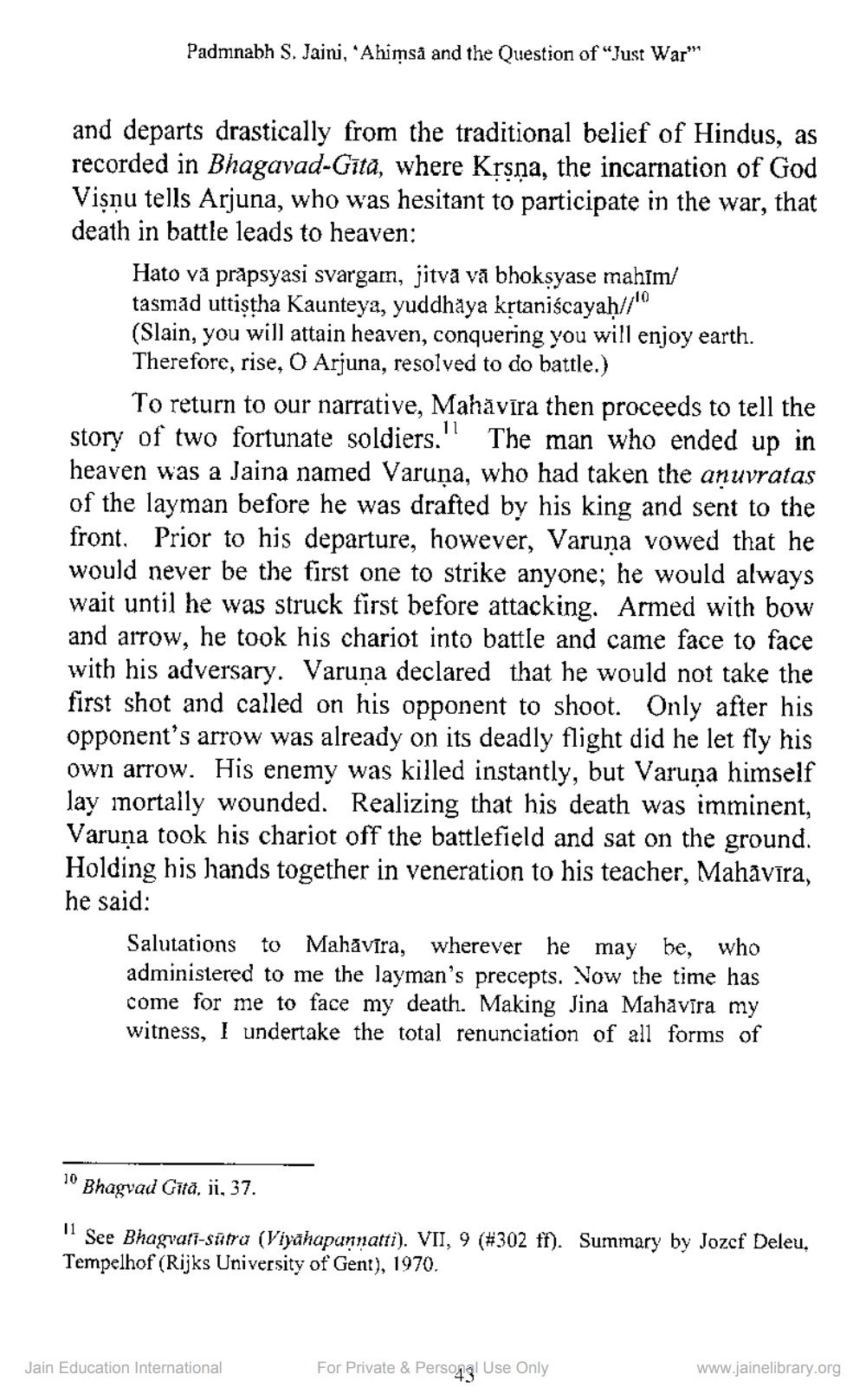Book Title: Ahimsa and Question of Just War Author(s): Padmanabh S Jaini Publisher: Z_Lessons_of_Ahimsa_and_Anekanta_for_Contemporary_Life_014006.pdf View full book textPage 9
________________ Padmnabh S. Jaini, Ahimsi and the Question of "Just War" and departs drastically from the traditional belief of Hindus, as recorded in Bhagavad-Gita, where Krsna, the incarnation of God Visnu tells Arjuna, who was hesitant to participate in the war, that death in battle leads to heaven: Hato vă prăpsyasi svargam, jitvā vă bhoksyase mahim/ tasmad uttistha Kaunteya, yuddhaya krtaniscayaḥ//"" (Slain, you will attain heaven, conquering you will enjoy earth. Therefore, rise, O Arjuna, resolved to do battle.) To return to our narrative, Mahāvīra then proceeds to tell the story of two fortunate soldiers." The man who ended up in heaven was a Jaina named Varuņa, who had taken the anuvratas of the layman before he was drafted by his king and sent to the front. Prior to his departure, however, Varuna vowed that he would never be the first one to strike anyone; he would always wait until he was struck first before attacking. Armed with bow and arrow, he took his chariot into battle and came face to face with his adversary. Varuna declared that he would not take the first shot and called on his opponent to shoot. Only after his opponent's arrow was already on its deadly flight did he let fly his own arrow. His enemy was killed instantly, but Varuņa himself lay mortally wounded. Realizing that his death was imminent, Varuna took his chariot off the battlefield and sat on the ground. Holding his hands together in veneration to his teacher, Mahāvīra, he said: Salutations to Mahāvīra, wherever he may be, who administered to me the layman's precepts. Now the time has come for me to face my death. Making Jina Mahavīra my witness, I undertake the total renunciation of all forms of 10 Bhagvad Gita, ji, 37. " See Bhagvari-sūtra (Viyahapannatti). VII, 9 (#302 ff). Summary by Jozef Deleu. Tempelhof (Rijks University of Gent), 1970. Jain Education International For Private & Personal Use Only www.jainelibrary.orgPage Navigation
1 ... 7 8 9 10 11
